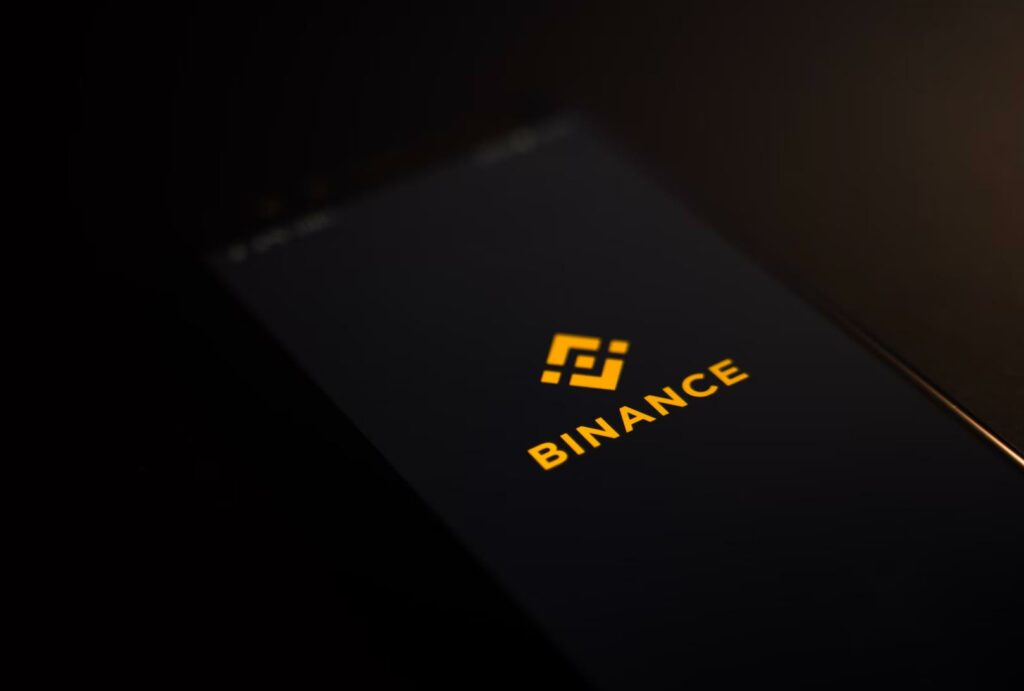The Commodity Futures Trading Commission (CFTC) filed a lawsuit in U.S. federal court on Monday against cryptocurrency trading platform Binance, its founder and CEO Changpeng Zhao “CZ,” and chief compliance officer Samuel Lim, for violating several U.S. laws governing commodities. Laws and regulations, including failure to combat money laundering on its platform. While the lawsuit primarily focuses on allegations that commodities exchanges are not registered in the U.S., it could have broader ramifications for Binance and the cryptoasset industry.
As part of its lawsuit, the CFTC wants an injunction effectively barring Binance and its affiliates, as well as CZ and Lim, from entering the U.S. commodities industry and turning over profits.

In response to the CFTC, CZ disagreed with the accusation and subsequently issued a statement on Binance’s website refuting it.
In a separate statement, a Binance spokesperson said: “The complaint filed by the CFTC was unexpected and disappointing, as we have been working with the CFTC for over two years. We have invested heavily over the past two years to ensure that our There are no active U.S. users on its platform, including growing its compliance staff from roughly 100 to 750 today.”
The U.S. Securities and Exchange Commission (SEC) is investigating a stablecoin called Binance USD (BUSD), which was developed by Binance in partnership with cryptocurrency service provider Paxos. It’s unclear whether the SEC will bring charges of its own.
The U.S. Department of Justice may also bring criminal charges against Binance. A person with knowledge of the CFTC investigation noted that Binance is also the subject of DOJ scrutiny.
Here are the seven main takeaways from the CFTC lawsuit against Binance.
Binance May Know It Facilitates Illegal Trading — But Doesn’t Care
The CFTC filing contained some of the most damaging allegations against Binance: that Binance may have knowingly facilitated transactions by organized crime and terrorist groups. The CFTC cited internal Binance chats that included conversations between then-chief compliance officer Lim and a money laundering reporting officer.
“Binance officials and employees acknowledged that the platform facilitated potentially illegal activities,” the report said.
“For example, in February 2019, after receiving information about a ‘transaction on HAMAS’ on Binance, Lim explained to a colleague that terrorists typically send ‘small amounts of money’ because ‘larger amounts constitute money laundering’ .”
The money laundering reporting officer replied: “$600 barely buys an AK47.”
In another example, a Binance employee wrote to Lim and another colleague, asking a customer whose recent $5 million transaction was closely related to illegal activity, whether the account should be closed or he should be advised to create a new one. account?
Lim suggested via internal chat: “He can tell him to be careful with his money flow, especially dark web like hydra. … He can abandon his current account and create a new one.”

“I have no confidence in our geofencing.”
Binance updated its terms of use in 2019 to include that Binance cannot “provide services to any United States person.” That same year, Binance said it began blocking customers based on their IP addresses.
“In effect, Binance simply added a pop-up window to its website that appeared when customers attempted to log in from an IP address associated with the United States,” the CFTC said.
However, instead of preventing customers from logging into their accounts, making deposits or trading, the pop-ups required them to “self-certify” that they were not in the US.
Binance’s IP address compliance controls, also known as “geofencing,” also were not effective at preventing customers from “restricted jurisdictions,” including the U.S., the CFTC said, possibly because Binance told U.S. customers that they could Hide its location to evade control.
Binance published a VPN Beginner’s Guide in 2019, explaining to customers how to use a VPN.
At one point, when Paxos asked Binance to conduct a compliance audit, a money laundering reporting officer at Binance sent Lim a message saying, “I have no confidence in our geofencing.”
The CFTC also said in the report that at least three U.S.-based trading firms were using Binance, implying that the breach went beyond normal consumer accounts.
VIP Program
According to the CFTC, Binance offers a “VIP” program for large customers, including faster transactions, as well as timely notification and advice should law enforcement make inquiries or target their funds.
“Binance is aware of the identity and geographic location of its VIPs because Binance conducts business by monitoring its trading volume and sources of revenue as a matter of course,” the report said.
An “important benefit” of the program is “prompt notification of any law enforcement investigations involving their accounts.”
The CFTC said the program was created by Lim at the direction of CZ.
Once funds are frozen or unfrozen, Binance’s VIP team will “contact the user via SMS, phone, etc. to inform him/her that his/her account has been frozen or unfrozen.” “It will not directly tell the user to run away, but directly tell them that the account has been unfrozen and has been investigated by XXX. If the user is a big trader, or a smart trader, he/she will be prompted.”
Binance employees also used Signal to communicate, and the agency said CZ and other employees used the “auto-delete feature” for business communications “even after Binance received the CFTC’s file request and Binance allegedly distributed file preservation notices to its employees.” , an automatic delay feature may allow employees to “destroy evidence after an exchange about guilt.”
CFTC Does Not Believe Binance.US Is Operating Separately From Binance
California-based BAM Trading operates Binance.US. BAM Trading is also owned and controlled by CZ and was never registered with the CFTC, the CFTC said.
“When he hired the first CEO of BAM Trading, CZ described Binance as a pirate ship, and he hoped that Binance.US would become a navy ship,” the CFTC said.
The CFTC added that the marketing and branding of Binance.US and Binance are similar.
Binance also relies on a “cloak of corporate entities” in a manner that appears to be similar to FTX’s complex international structure, and after FTX’s collapse, it was surprising how many related corporate entities FTX had. The CFTC believes that Binance’s numerous corporate entities deliberately conceal the platform’s location and confuse the outside world.
“Binance was extremely effective in obfuscating its location and the identity of the operating company, even Lim,” the CFTC said.
When the CFTC tried to find Lim’s address to serve him a subpoena, the venue was confusing.
Trade With Customers
Binance maintains about 300 “internal accounts” that trade on the platform and are “owned directly or indirectly by CZ,” in addition to two other entities he controls, Merit Peak and Sigma Chain, and two other accounts managed by CZ .
The CFTC stated: “Binance did not disclose to its customers, either in its terms of use or elsewhere, that Binance traded on its own market. …Rather than apparently attempting to keep its proprietary trading activity on its own market private Consistently, Binance declined to respond to an investigative subpoena issued by the CFTC seeking information regarding its proprietary trading activities, including trading data and communications between employees.”
In a statement late Monday, CZ said: “Binance will not under any circumstances be for profit or ‘manipulate’ the market. Binance ‘trades’ in many cases because our revenue comes from cryptocurrencies .We do need to switch them from time to time to cover other fees. We have affiliates that provide liquidity for less liquid currency pairs. These affiliates are specially monitored and do not make large profits.”
Regarding his personal activities, he added: “Personally, I have two accounts at Binance: one for the Binance Card and one for my personal crypto assets. I store my own crypto as well. On Binance. I also need to switch cryptocurrencies from time to time to cover my personal expenses.”
CZ Is Directly Implicated in Multiple Ways
CZ is named as a defendant and is mentioned repeatedly throughout the litigation report.
The CFTC said CZ directly or indirectly owns all of Binance’s corporate entities and is “responsible only to himself” because Binance does not have a board of directors.
Some of the 120 entities, including Binance Holding, Binance IE and Binance Services, have mixed funds and shared infrastructure, the CFTC said. In addition to controlling the Binance network, CZ also “directly approves products.”
As Binance grew, CZ hired a senior management team, but he continues to be involved and in control of “all key decisions for the business,” including which products to offer and how AML and KYC are implemented and enforced.
“CZ is also responsible for assessing the legal and regulatory risks associated with Binance’s business activities, including those associated with Binance.US, and is directly involved in discussions with compliance advisors and attorneys on legal and regulatory issues related to Binance’s business,” the CFTC said .
CZ, Lim, and other members of Binance management receive regular updates that include information about Binance.US customers, “and the effectiveness of Binance’s efforts to capture the U.S. market.”
CFTC Says BUSD and Litecoin LTC -4.36% Are Commodities
The CFTC named several cryptoassets traded on Binance as commodities, including LTC, ETH, USDT, and BUSD.
BUSD came under scrutiny more than a month ago after Paxos received notice of an investigation into its BUSD joint offering with Binance.
Paxos was also mentioned in the CFTC’s allegations. The CFTC said Binance attempted to conceal the extent of inefficiencies in its BUSD compliance program from business partners, including Paxos.
In 2020, Binance conducted a compliance audit of BUSD in order to meet Paxos requirements.
“But according to Lim, Binance intentionally hired a compliance auditor who ‘only conducted a personal audit of the geographic assessment’ to ‘buy us more time,’” the CFTC wrote in its lawsuit report. .
LTC has been getting less attention as to whether it is a security or a commodity, but the CFTC seems to have concluded that it is a commodity.
For ETH in particular, other regulators disagree. SEC Chairman Gary Gensler and New York Attorney General Letitia James have both suggested that ETH is a security. Ether is a security, James said in his lawsuit against cryptocurrency trading platform KuCoin earlier this month. CFTC Chairman Rostin Behnam, however, sees it as a commodity.






